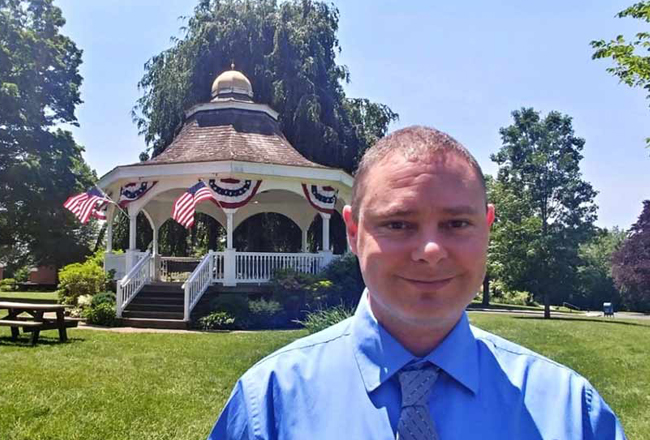An investor in a New Rochelle apartment building is claiming that documents were forged to get $5.4 million in advances on a construction loan.
Robert J. Leaf sued brothers Anthony and William Hammel and their Equity Land Developers LLC on July 9 in Westchester Supreme Court, to prevent the developers from destroying business records before he can file for arbitration.
Leaf lost the first round on July 10 when Justice Gerald E. Loehr denied a temporary restraining order.
Leaf”™s claims are “patently meritless,” said the Hammels”™ Manhattan attorney, Jay B. Solomon. “The judge found that he had not raised any issues that couldn”™t be raised in arbitration.”
Anthony Hammel of White Plains and William Hammel of Stamford are creating a distinct downtown enclave in the Burling Triangle, between the New England Thruway (I-95) and Memorial Highway, near the New Rochelle train station. They are replacing old houses with low-rise buildings that will eventually add more than 300 apartments to the neighborhood. Two structures have been built and they are working on three more.
Leaf, of Mamaroneck, is a retired dentist and a dental insurance consultant. He personally guaranteed a $27 million construction loan, according to his petition, has spent $18 million on the Millennia, the Hammels”™ third building, in which he has an 84% interest.
Construction loans are typically funded piecemeal, as the general contractor certifies that work has actually been done and an architect certifies that the work was done properly.
Anthony Hammel submitted 10 certificates of payment from 2017 to 2018, totaling $5.4 million, according to the petition. They were signed by general contractor Michael Esteves, notarized by Bruce J. Moses and certified by architect Robert Silarski.
Leaf noticed that some of the signatures seemed identical and all 10 documents were notarized on the same date. He hired Access Forensic Group to examine the papers.
Examiner Richard T. Picciochi reported on June 6 that the Moses and Silarski signatures appeared to have been duplicated.
Moses swore under oath that he did not notarize any of the certificates of payment and did not authorize anyone to use his signature or notary stamp.
Silarski swore that he had not signed the papers.
If the lender, Community Preservation Corp., knew about questionable certifications, the petition states, it would immediately call for a default on the construction loan, leaving Leaf liable for the balance of the loan.
Leaf also accuses the Hammels of blocking his access to the Millennia construction site, denying access to the project books and threatening to shut down the project.
He claims that the Hammels demanded payments for construction costs, that he is willing to pay, but have refused to itemize the bills.
The Millennia was originally supposed to be done by last August, then by this past March, and now, according to Anthony Hammel, in three months.
Leaf claims that the developers caused “massive delays” by interfering with subcontractors, firing and failing to replace subcontractors, delaying deliveries to the site, and by improper installation of a roof that caused significant leaks and damage.
“We claim the delay is the result of Bob being behind on his financial obligations,” Anthony Hammel said in an email, “and because of his continuous interference with nearly every trade (contractor).”
Leaf intends to compel an accounting of project funds, through arbitration, and accuse the developers of breach of fiduciary duty and beaches of contract.
Anthony Hammel depicted arbitration as a way to “mediate our differences like gentlemen.”
Leaf is represented by Manhattan attorneys Colin E. Kaufman and Israel A. Katz.





















This was a bogus attempt by Robert Leaf to extort money from our organization. These unfounded claims were immediately thrown out by the judge and Robert Leaf had to sign a release to all those he claimed harmed him.